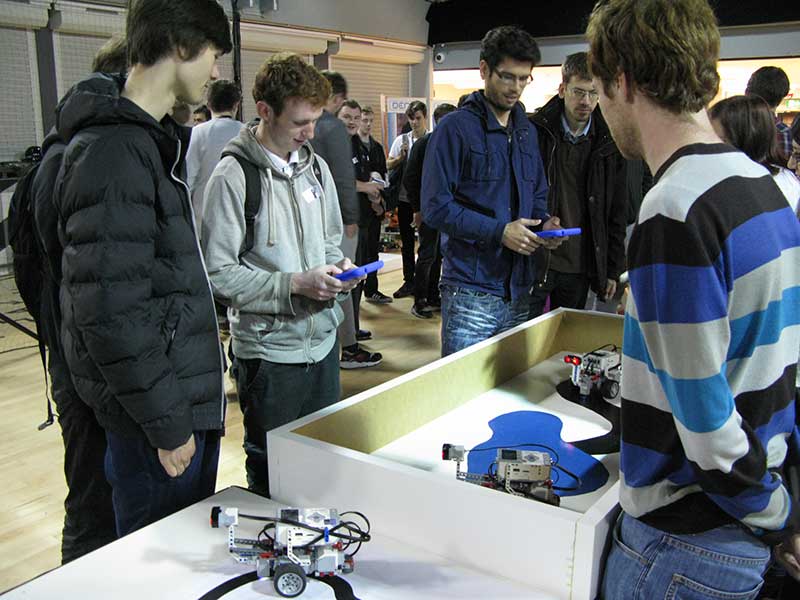
A group of Level 3 Engineering students had the chance to see what the future of the industry might hold when they visited the TAROS 2015 Exhibition at the University of Liverpool.
The visit to the exhibition was part of the students’ first few weeks on their course, aimed at inspiring them and giving them a taste of the industries their qualification could take them into.
Accompanying the students was lecturer, Martin Speed, who said:
“Having the opportunity to see the robotic technology in action was invaluable. The students were really enthusiastic about what they saw and the visit clearly had the desired effect. They came back to the classroom motivated to get started on the course and keen to find out more. The Exhibition gave them an insight into how robotic technology is already used across a whole range of industries so it widened their view of the types of careers they could aspire to.”
Showcasing the latest advancements in robotics and autonomous systems and their industrial applications, the exhibition included global leaders in robotics development and displayed the latest innovations in manufacturing, automation, medical and healthcare applications.
Student Liam Simpson said:
“The part of the exhibition that I found really interesting was the robotics being developed to support people with limited use of limbs or people who use wheelchairs. We saw a video showing a person in a wheelchair using a joystick to move a robotic arm to make a cup of juice. The technology is amazing and it’s really encouraged me to consider working in this field of engineering.”
Another student, James Rowan, said:
“What really interested me at the exhibition were the robotics used in the automotive industry involving lasers. I wouldn’t have known about this area if I hadn’t gone to the exhibition so I’m really glad we were able to go.”
On the engineering course at Hugh Baird College, as well as units covering traditional electronics, they also move students into understanding developments in the expanding area of robotics. They’ll gain the skills and knowledge that the engineering industry will be looking for as we move into the robotics era.
